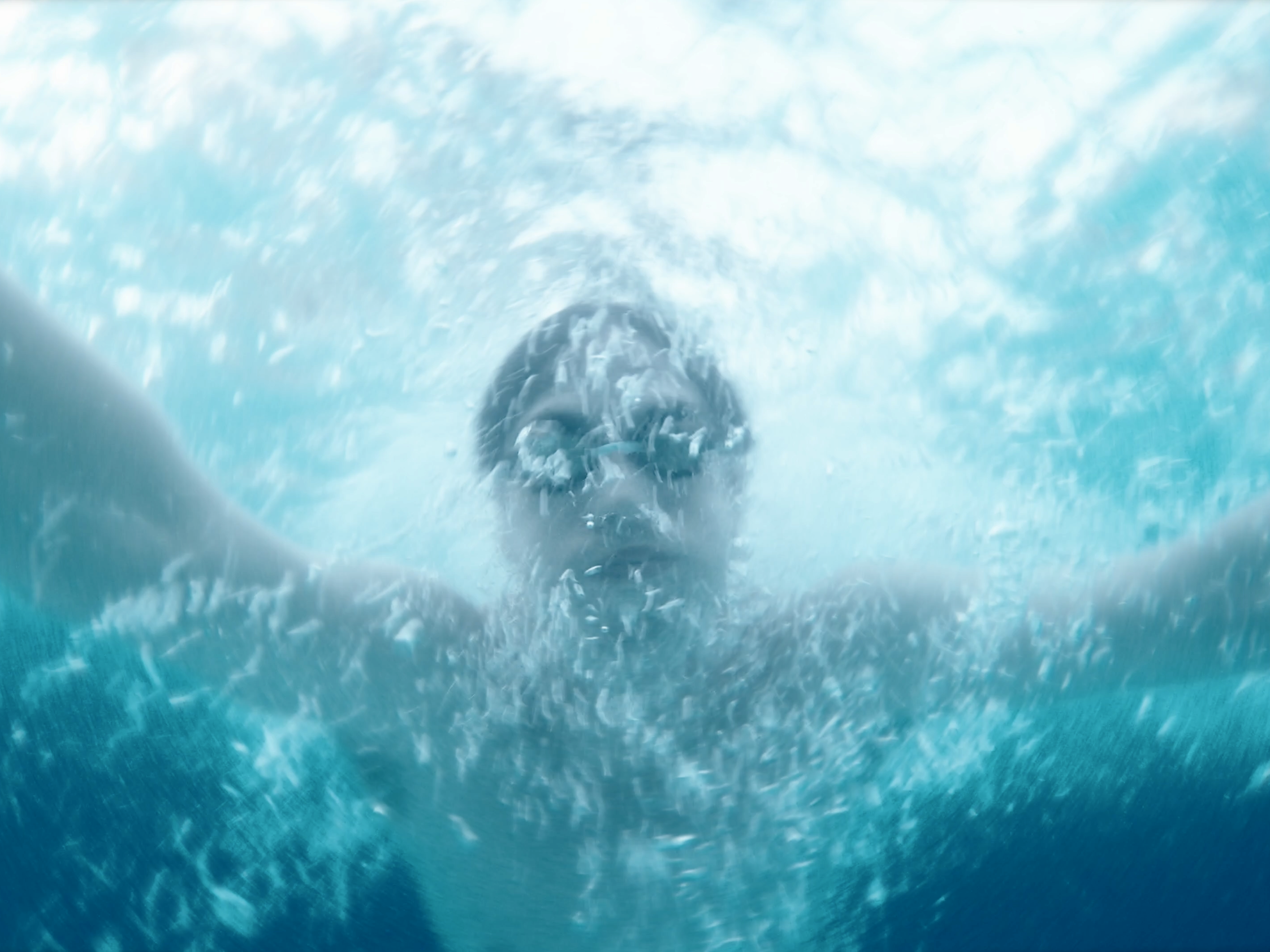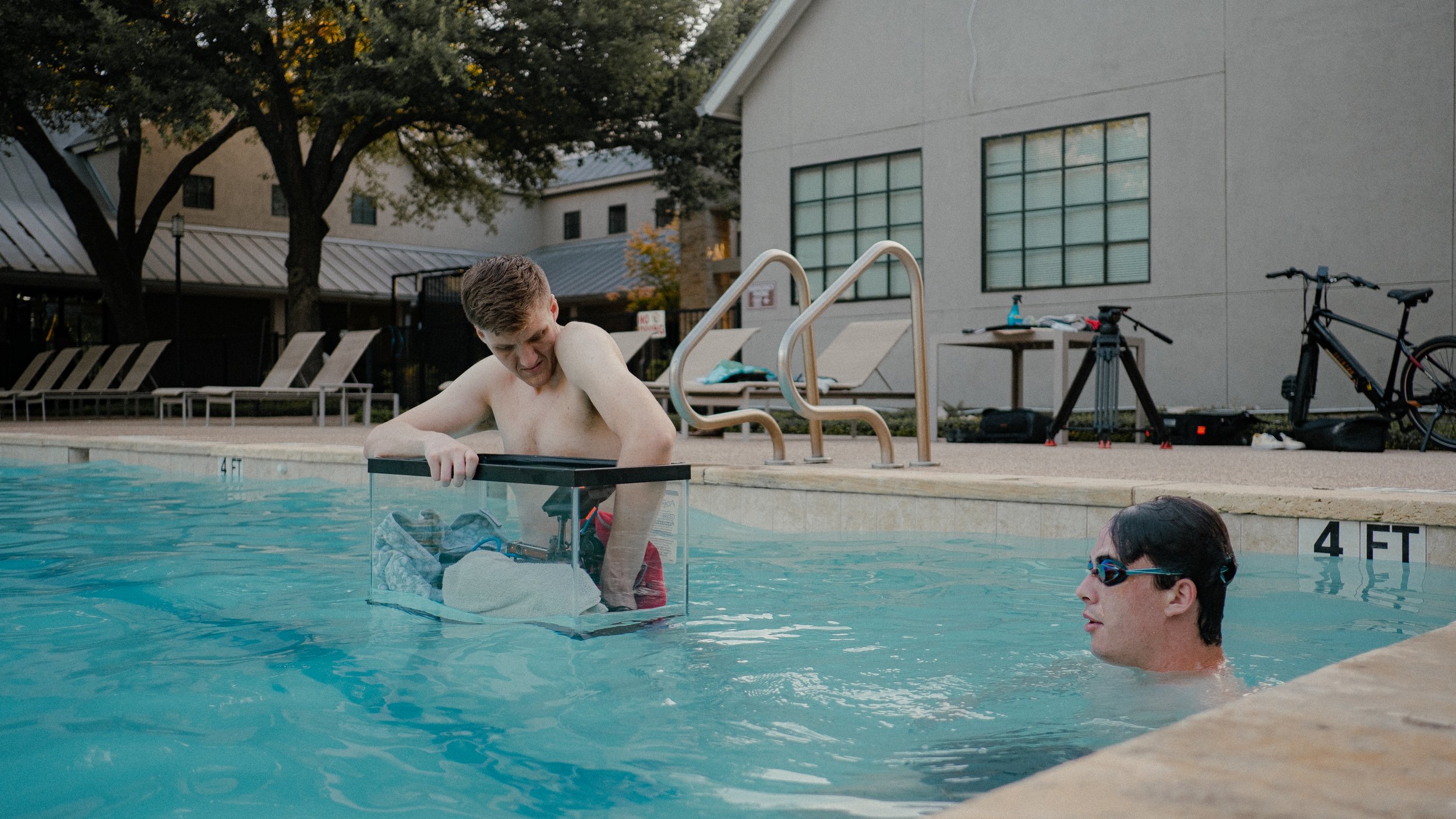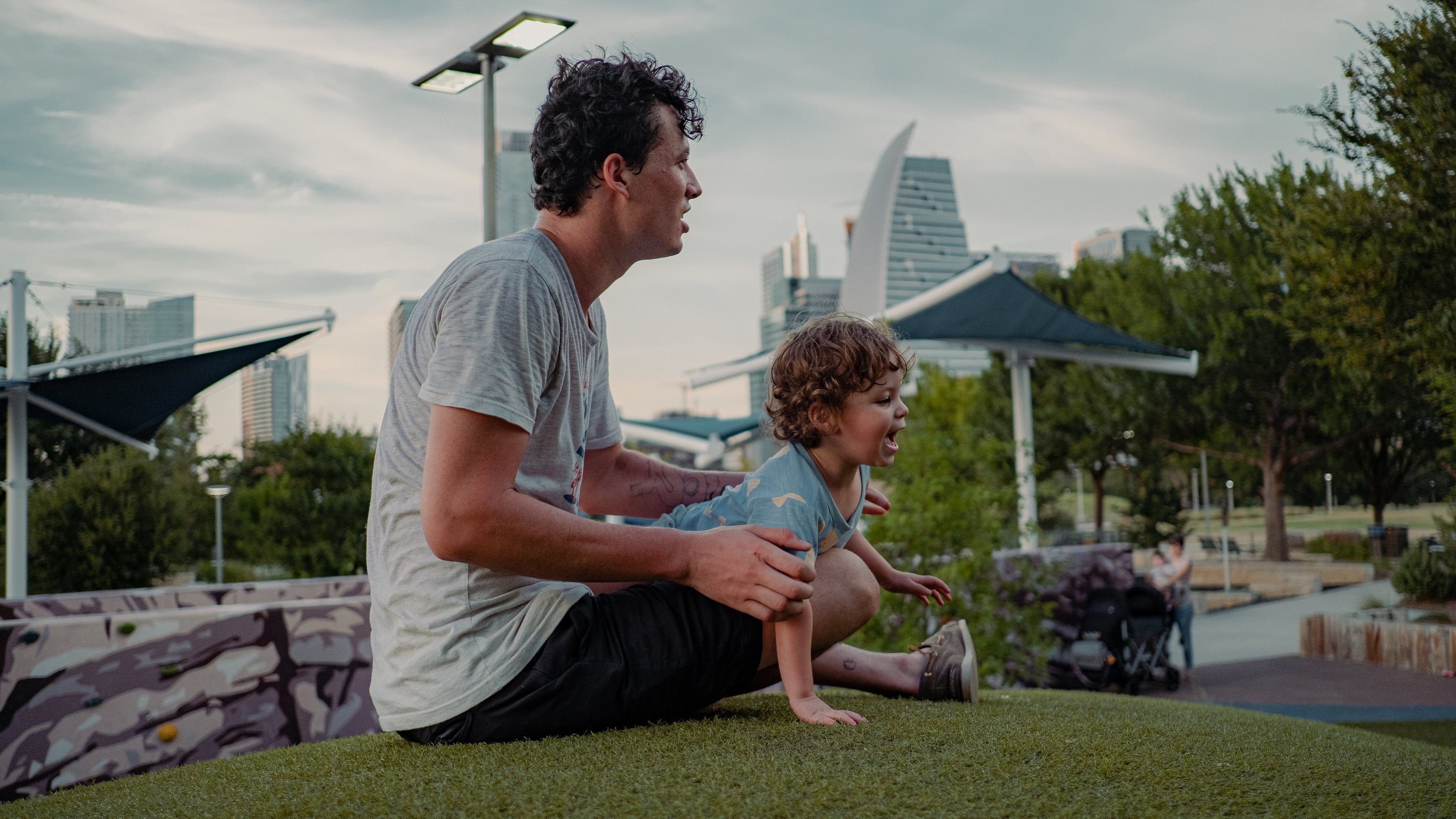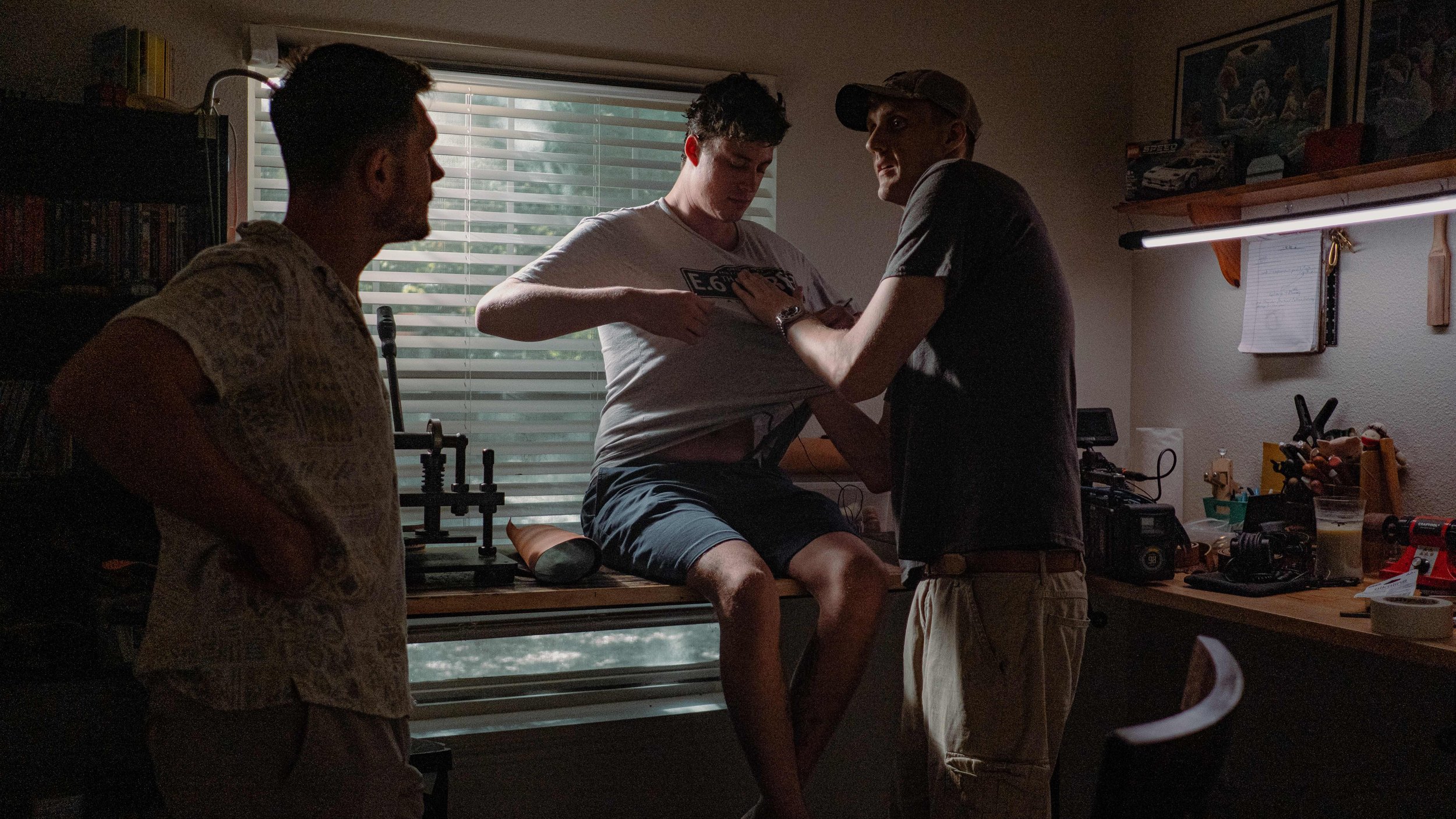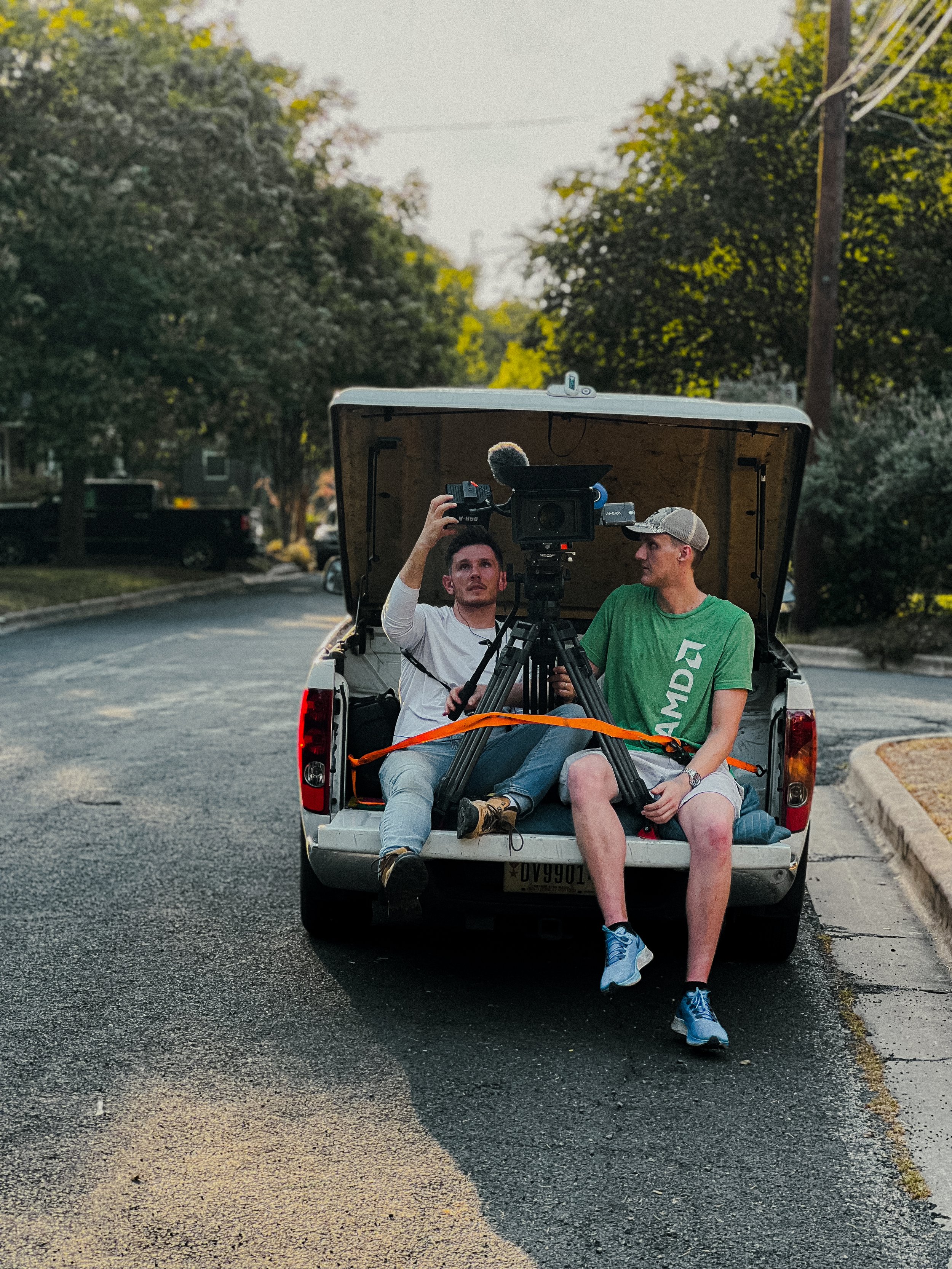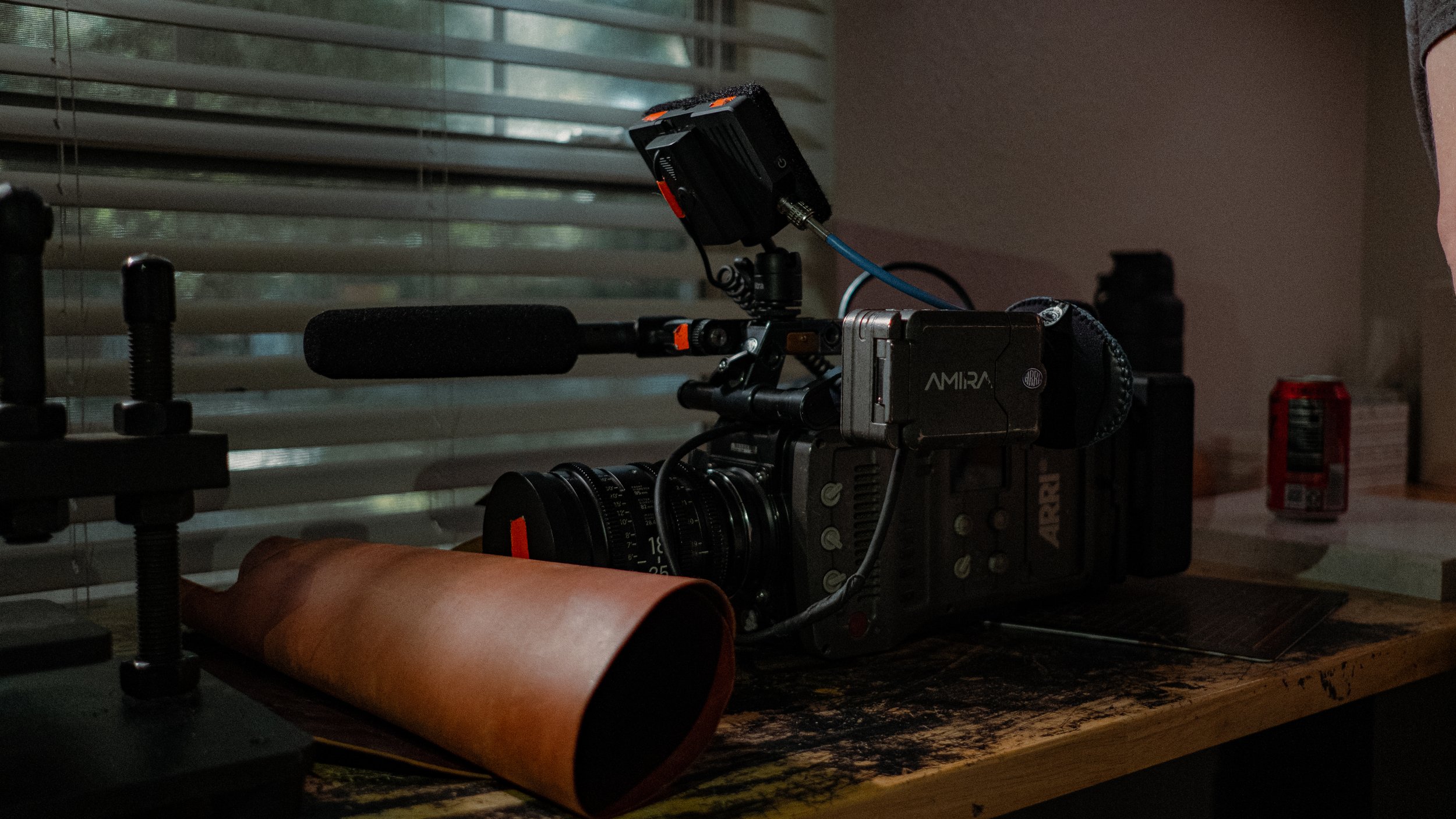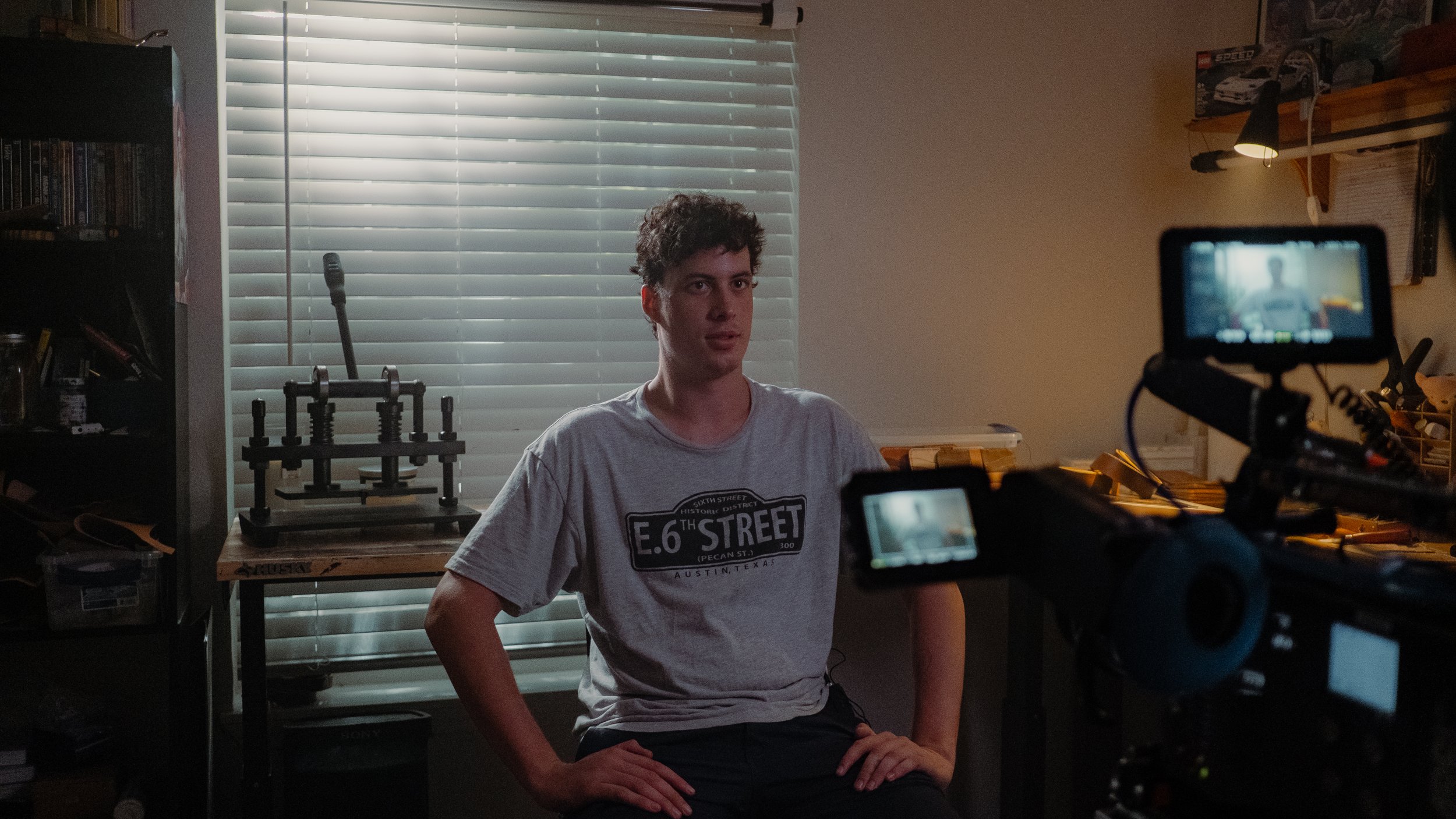The Texan Spirit
A celebration of life dedicated to Texas leather worker and pedicab driver Tony Nuanez
Directed by Olexiy Kryvych
Interview by Tatev Avetisyan
Tony Nuanez led a multifaceted life, working as a pedicab driver, leathercrafter, and balancing his family life with being a husband and a father to three children. In March 2023, following an unfortunate event, Nuanez passed away. The Texas-based director, Olexiy Kryvych, captured his journey in pursuit of interpreting The Texan Spirit. The film turned into a celebration of his life, the passion and hard work Nuanez put into building his family, career and open mindedness.
In conversation with Olexiy, we get a glimpse into the concept development of The Texan Spirit, the importance of navigating the balance between privacy and artistic motivations, and Olexiy’s future projects.
How did you get involved in filmmaking?
My journey in film began in 2011 when I randomly stumbled into a commercial audition and found a love for acting. A few years later, after finishing a university degree in theatre and acting professionally in Chicago for a few years, I wanted to start making my own films. From 2018 until now, I took on photography, screenwriting, and directing. I began working as a unit photographer on feature films, where I could see exactly how a film set operates. At the same time, I wrote and directed my own short films and spec commercials, honing in on my personal directing style. In every piece of my work, my goal is to have a story and dramatic structure and create a world where viewers can lose themselves.
Could you share with us the process of developing the concept for The Texan Spirit, including how you met Tony Nunez and what about his story resonated with you?
In the summer of last year, my DP, Spencer Greene, told me how he randomly met this cool guy in the late hours of the night, who is a pedicab driver and a leather worker, and how he manages his time between these two jobs and being a father of two. That alone was a combination that I haven’t heard of before. Also, having been living in Austin since 2019, I wanted to make a film about it, and that was the perfect chance to do it. When we met Tony, I saw that he represented everything that Austin is to me - a strong sense of community, a hard-working attitude with a sense of calm in it, a passion to create something unique, and to live life to the fullest each day.
As the filmmaker, how did you balance the need to tell Tony Nunez's story in a compelling way, while also respecting his privacy and boundaries? What were some of the challenges you faced in this regard, and how did you navigate them?
I really wanted to capture true moments from his life and convey to the audience the feeling I had when I met him and was with him for these four days. All of this meant that we needed to be a fly on the wall and capture everything he was doing up close and personal. It also meant that he would have to not try to be anything he wasn’t in front of the camera. And Tony did just that. I don’t think he could ever be anything besides himself, which is exactly what was needed.
It definitely wasn’t easy for him and his family. We spent four days filming his work, interacting with his fiance and kids, and going about his usual business. He and his fiance Jenna were really patient with us, and thankfully, my DP and I shortlisted beforehand and got the most important shots at the beginning of the day. Towards the end of the second and third days, when we were already shooting for about 8-9 hours, it got a bit difficult because he needed to help his fiance with the kids. When it got too difficult for them, we would combine a few shots, shoot quickly, and let them have their peace.
“We wanted to bring down the intensity in-between his jobs and focus on how he recuperates and processes life. We wanted to represent the rollercoaster that was his life. ”
Some people view Texans as hardy individuals who can endure hardships. Was this a theme you intentionally sought to convey through your film, or did it emerge organically?
It definitely was the theme from the beginning. Without giving away personal details about himself, before finding the love of his life, having kids, and finding these two incredible jobs, he had struggled and had been on a totally different path. In just a couple of years, he changed all with just his will and attitude, and we got to capture his success and share it with everyone.
What message do you hope viewers will take away from watching The Texan Spirit?
Unfortunately, Tony passed away unexpectedly a few days before we finished the edit, so, first and foremost, this film is a celebration of his life and a time capsule for his family. But beyond that, with The Texan Spirit, I wanted to inspire people to be more like Tony, to not be afraid of challenges, to take every day one step at a time, to live life to the fullest, and as he said himself “There’s always something out there. You just gotta find it.”
Can you walk us through your decision-making process when choosing the style and tone of the documentary? Were there any particular challenges you faced in filming and editing the scenes, and how did you overcome them?
My DP and I knew right away that we wanted to film in the 4x3 format, because we wanted to make it very personal and have Tony fill the frame in every shot. We also wanted to capture the colour palette of Austin, which to me is very colourful with oranges, reds, and warm greens at every corner. Also, even though Austin is a very modern city, we wanted to capture the rough texture of Tony’s life, which is full of Austin's back alleys, his work room, the textures of leather products he made, and his tools. Hence we went for a washed-out grainy image.
Tonally, the bulk of conceptualising was done in the editing room. From the very first few seconds, we wanted to show the high pace of his life with quick cuts, different sounds of the street, and speed-ramping shots. Then, we wanted to bring down the intensity in-between his jobs and focus on how he recuperates and processes life. We wanted to represent the rollercoaster that was his life.
When Tony plunges into the pool, it feels like time stands still. Do you believe that taking a moment to pause and reflect is a valuable practice in both cinema and our daily lives? Furthermore, in what ways do documentaries offer a distinctive contribution to storytelling that differs from other forms of media?
I believe that taking a moment to pause and reflect is one of the most valuable practices one could do. We rush through our lives so fast that we forget to enjoy the moments and reflect on them. Everyone does it differently. I journal and take walks almost every day. Sometimes it’s the only thing that keeps me sane and allows me to progress through life, learn and live more fully and consciously.
I think that in documentaries, you are stripped of any excessive elements of storytelling and are allowed to focus on the individual, their story, and their truth. This form of media, in general, and Tony’s story shows us real people dealing with tough things and overcoming them, giving us all hope that we can do the same.
What projects are you working on next?
Currently, I’m in the process of re-writing my feature script and sending it to the lead actress to package it. I’m also set to direct my first studio commercial in April, and then do unit photography on a feature film in Thailand.
Director: Olexiy Kryvych
Producer: Olexiy Kryvych
Key Cast: Tony Nunez



